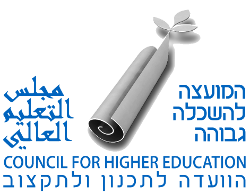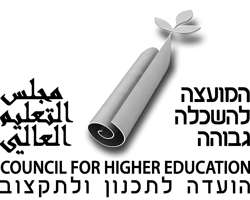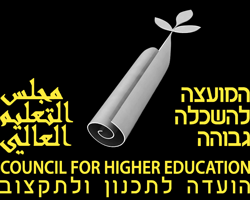Academic Excellence Program for Students of Ethiopian Descent
The target: 50% growth in the number admitted for first year studies
- The number of Ethiopian students admitted to first year studies for bachelor’s degrees is expected to grow in the coming years from 700 to 1,000 students a year. The budget is NIS 75 million.
- Emphasis on excellence in the sciences and creating Mofet groups of Ethiopian students. According to the plan, outstanding students in each year will receive NIS 10,000 in scholarships.
- To ensure optimal integration, the institutions of higher learning will cancel all programs that differentiate between Ethiopian and other students.
- The higher education preparation programs will be intensified before students enter academia, and support will be provided for Mechina (preparatory program) students (NIS 6,000) and undergraduate students (NIS 5,000) for tutoring, academic assistance, preparation for admission exams, funding of dorms or travel, etc.
In its meeting on Wednesday, the Planning and Budgeting Committee (PBC) approved the recommendations of the steering committees to encourage and foster academic excellence among Ethiopian students through a total budget of NIS 75 million. In approving the multiannual program (through 2022), the PBC set a target for gradual growth of 50% in the number of Ethiopian students admitted for first year studies in undergraduate programs at Israeli universities and colleges. Therefore, the number of Ethiopians admitted for academic studies is expected to grow in the coming years from 700 to 1,100 students annually. The total number of undergraduates is expected to reach 3,500 at the end of the five-year period, meaning that the percentage of Ethiopian undergraduate students will grow to reflect the percentage of the population.
Minister of Education and CHE Chairman Naftali Bennett: “From now on, we will no longer talk about integration of Ethiopian students in academia solely in terms of access and will start emphasizing the promotion of excellence. The program will open the gates of higher education and lead to a dramatic increase in the number of Ethiopian students in academia, while at the same time fostering tracks of excellence to orient the students towards important achievements in the sciences and engineering.”
Chairperson of the PBC, Yaffa Zilbershats: “The PBC has defined access to the system of higher education for special populations as a key target in its work plan, with a focus on Ethiopian, Haredi and Arab students. We are obligated to foster academic and research excellence, while opening the gates of higher education to all of the groups and social sectors, and to promote true equality that allows all students in Israel to realize their skills, regardless of their origin or place of residence.”
Committee Member and former Knesset Member Penina Tamanu-Shata: “It’s still too early to congratulate ourselves on a job well done, as the goal is to bring about a change throughout academia, while opening the gates, promoting excellence and outstanding students, entry into sought after professions and nurturing future academic faculty. Note that we have led a clear line to stop the differentiation of Ethiopian students, which frequently leads to discrimination. The decisions will soon be submitted to the Ministerial Committee in order to approve the package of assistance and the reform required.”
Committee Chairman, Prof. Yossi Shain: “I am delighted that the recommendations of the national committee I headed regarding Ethiopians in academia were all accepted. The government and the Council for Higher Education decided to dedicate substantial resources, and now we need to get the ball rolling!
I hope that this is just the harbinger of work to promote thousands of young members of the Ethiopian community, second- and even third-generation in Israel, who bravely, proudly and very skillfully serve the country in numerous fields. It goes without saying that they are entitled not only to significant support to enter academia, but to new perceptual positioning of excellence in the sciences! The new policy is in addition to the policy of access and inclusion adopted by the PBC, with a major emphasis on promoting excellence in the sciences and engineering, professions that are particularly well paid.”
The steering committee for integration of Ethiopians in academia led by PBC member, Prof. Yossi Shain, started its work in November 2016, with the goal of increasing the percentage of Ethiopian students in higher education, to reduce their dropout rate and to increase the rate of their participation in graduate degrees and academic faculty.
Committee Members:
Chairman – Prof. Yossi Shain – PBC member
Ms. Penina Tamanu-Shata – Former MK, public representative who also served as temporary Chairperson until the appointment of a PBC member
Prof. Shifra Sagy – Ben-Gurion University and member of CHE
Dr. Chen Lifshitz – Ashkelon Academic College
Rabbi Dr. Sharon Shalom – Bar-Ilan University
Dr. Webbit Varko – The David Yellin Academic College
Ms. Ziva Mekonen – Public Representative
Mr. Jigao Bimaru – Student Representative
Representative of the Ministry of Finance
External Observer – Professional representative on behalf of the Student Authority – Ministry of Aliyah and Immigration
In the course of its work, the Steering Committee mapped the main barriers to integration of Ethiopians in the higher education system. These barriers include, among other things, a low rate of students with matriculation certificates who meet the criteria established by the universities, admissions exams, lack of information, academic preparation counseling and guidance, high dropout rates in the transition from first year to second year, and a lack of variety in the fields of study.
The Committee’s recommendations relate to a multiannual plan and include a series of additional, holistic steps that will be implemented gradually through 2022. Among other things, the recommendations include the following:
Program for outstanding students
Encouraging excellence and establishing Mofet groups among Ethiopian students that will have an impact both within the community and on Israeli society as a whole.
The program for academic excellence in the sciences will include up to 100 students in each year, with an emphasis placed on selecting quality and diverse fields of study at Israel’s leading institutions of higher learning. The outstanding students will benefit from higher scholarships – up to NIS 10,000, so that they will be able to dedicate most of their time to their studies.
Among other things, the program will include the following: Leadership meetings, training and empowerment, personal and group guidance throughout undergraduate study, social endeavors within the community – volunteer activity/personal project, assistance in integrating into the labor market/studies toward advanced degrees, etc.
General guidelines for optimal integration in academia:
To ensure optimal integration, the Committee recommends that the institutions of higher learning gradually cancel all of the programs that differentiate between Ethiopian and other students.
A special coordinator for Ethiopian access to higher education will no longer be budgeted, the contact for Ethiopian students is the Dean of Students or any other relevant contact at the institution that works for the benefit of all students.
Guidance and location activities prior to entering academia:
The Committee determined that in order to increase the number of young Ethiopians in the system of higher education and based on the understanding that making the information accessible is critical for them, there is a need for proactive work to promote and identify the young people in the Ethiopian community with potential for higher education.
During the multiannual plan, coordinators of the Hesegim program for accessibility to higher education for young people from the periphery in the top ten areas in terms of the size of the Ethiopian population will be hired. The role of the coordinators will be to identify the appropriate young people, direct them towards academia and help them select a field of study.
Support for students in the Mechinot preparatory programs
Ethiopian students in Mechinot at government-funded institutions will each receive NIS 6,100 in support for tutoring, academic assistance, preparation for admission exams, funding of dorms or travel, etc.
Support for students in bachelor’s degree programs
Students in bachelor’s degree programs at institutions funded by the PBC will receive support of up to NIS 5,500 for students studying the sciences, medicine and engineering, and NIS 4,000 for other students. Among other things, the support will include the elements: tutoring and academic assistance, learning strategies, funding of dorms, diagnosis of learning disabilities, etc.
The main barriers to integration of Ethiopians in the system of higher education
Matriculation exams – the percentage of students with matriculation certificates who meet the criteria of the universities is 31% among Ethiopians compared to 63% of the general population.
Psychometric exam – a barrier to acceptance, and a barrier to admission to highly sought after faculties and institutions. While in the majority group, many young people repeat preparation for the psychometric exam and repeat the exam itself in order to improve their scores, the Ethiopian students have a hard time doing so because of the financial barrier.
Lack of pre-academic information, guidance and direction – difficulty making decisions: about academic studies, field of study, academic institutions, etc.
Academic preparatory programs – decline in the number of Ethiopian Mechina students.
Dropout rates – in the transition from the first to second year is 20% higher than the average in the general population.
Lack of variety in fields of study – focus on social sciences.


